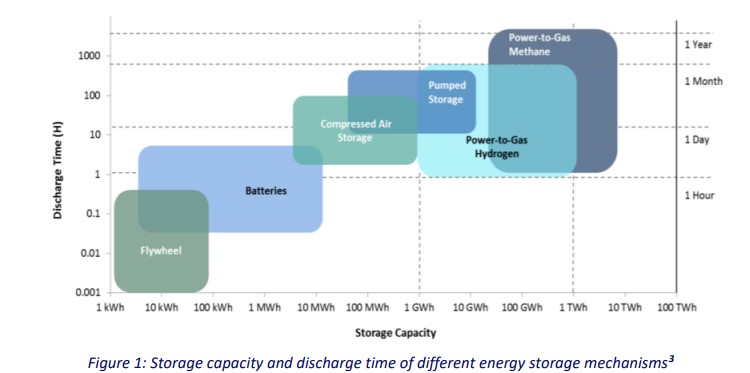

While hydrogen-powered cars might not be viable due to their sizes and use cases, road freight vehicles like trucks are an entirely different story. With new innovations being an nouned at CES 2024, the green hydrogen industry is shaping up to be one of the biggest ones in the near future.
With the Earth’s supply of hydrogen being virtually unlimited, hydrogen might end up being the stopgap needed for a transition to renewable energy. In propulsion technology, hydrogen is a potential replacement for fossil fuels. Along with battery-powered electric vehicles, hydrogen fuel cells are a significant technological alternative for road freight, which is still predominantly diesel-powered today. While batteries don’t make too much sense for freight vehicles due to their storage capacity, weight and charging speeds, hydrogen fuel cells offer significant advantages in long distance transportation.


Due to its high energy density, hydrogen enables trucks to travel long distances: 800 to 1000 kilometres without having to stop to refuel. Hydrogen trucks could therefore become an excellent alternative to diesel for long-haul transport, considering refueling times as well. Depending on the model, hydrogen fuel cells can be refilled in 10-15 minutes, a stark contrast to battery power’s up to 90-minute charge times. Research firm Interact Analysis estimates that even as China will dominate the Hydrogen truck market as well by 2030, Europe should have 45000 Hydrogen powered trucks running by 2030 as well.
Europe Moves To Stay In the Race
In Europe, the H2Accelerate collaboration has been formed between Daimler Truck AG, IVECO, OMV, Shell, TotalEnergies, and Volvo Group to work collaboratively to develop the evidence base and public funding programs which can help move Europe towards a commercially viable hydrogen trucking system.
In North America as well, companies like Volvo and Walmart assisted by Nikola have jumped on the hydrogen truck trend, with Trucks that run on green hydrogen providing a significant step for Volvo to achieve its net zero goal and Walmart Canada becoming the first major retail chain in North America to introduce a hydrogen fuel cell electric semi truck to its fleet. Nikola has said deliveries of its hydrogen-fuel cell trucks rose 80% in the second quarter from the previous three months, surpassing the startup’s expectations and signaling strong demand for the big rigs amid its pivot from battery-powered vehicles.
Production of green hydrogen provides a massive opportunity for renewable energy as well. Electrolysis requires a lot of power, a niche which can be perfectly filled in by renewable energy sources.
However, it’s not smooth sailing for hydrogen-based trucks just yet. The total operating costs of hydrogen trucks are still too high to compete economically with conventional vehicles and the necessary refueling infrastructure is lacking. A truck refueling infrastructure still needs to be developed, since most hydrogen refueling stations are designed only for cars. Hydrogen-based engines also suffer from delays in cold weather: They take substantially longer to warm up, upwards of 20 minutes to half an hour on particularly cold days. This is assuming that the trucks will start in the first place, with temperatures below -20 C causing trucks to either break down or severely underperform. Drivers also need to adapt to the feel of the truck to ensure they use regenerative braking properly. This challenge is compounded by the automatic transmissions used in many of the fuel cell electric trucks.
To mitigate these, the hydrogen providers involved in H2Accelerate plan to roll out hydrogen refuelling infrastructure across key strategic routes and expand from these routes to provide sufficient coverage to support continent-wide hydrogen trucking for Europe. These stations will have a high capacity to refuel fleets of hydrogen trucks using renewable hydrogen in under 15 minutes and will be modular so that they can easily expand with increasing penetration of hydrogen trucks. Hydrogen has the additional advantage here that the long range of the hydrogen truck reduces the number of refuelling stations needed compared with battery charging stations to cover the same overall length of road.
Houston headquartered Syzygy Plasmonics has announced the beginning of Front-End Engineering and Design (FEED) with…
State owned THDC India Limited (THDCIL) has announced the successful commencement of COD process of…
The Uttar Pradesh government is preparing to launch the Uttar Pradesh Sustainable Aviation Fuel (SAF)…
India’s cooperative sugar industry is urging the government to revise ethanol procurement prices and extend…
The Indian Biogas Association (IBA) has announced a key step taken to boost biofuels sector…
In a key development that would bolster the development of green hydrogen in the North…